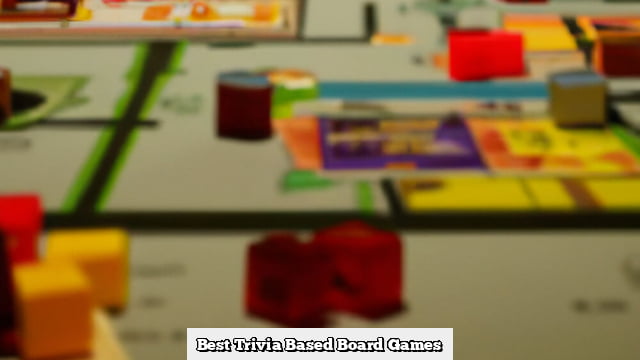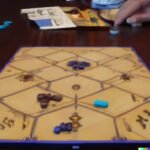Introduction
Card based board games are a type of board game that relies heavily upon the use of cards as playing pieces. These types of board games typically involve strategy and knowledge-based challenges that require players to manage cards in their hand, draw additional cards to complete a goal, or place them on a game board in order to move along the game path. Compared to conventional board games, card based ones tend to provide more variety and unpredictability as they often lack ordinary linear mechanics. This means that nearly every round consists of completely different card combinations, requiring players to adjust their strategies each time ” making for an exciting and unique experience with each playthrough. Another benefit of this type of game is the ability for multiple players to all engage at the same time, making it great for groups or families who want something other than traditional Monopoly or Chess. Card based board games are full of surprises and possibilities, making them both exciting and mentally stimulating for players of all ages.
Types of Card Based Board Games
Card based board games are a genre of board game that utilizes a combination of cards as the basis for its gameplay. Many card based board games include game pieces such as pawns, dice, or tokens and incorporate elements of other genres such as role playing, collectible card games, miniatures, and more. Typical core mechanics in this genre include resource management and development, economics, combat, exploration, collecting and trading items or resources. Popular card based board games include Dominion, Magic: The Gathering Arena and Carcassonne.
Examples of popular Resource Management and Development board games can be found in many classic titles such as Settlers of CatanAgricola. A resource based system is often created by the use of collectible resources cards which dictate the amount of resources each player has available to them during the course of the game. Player development occurs when they use up their limited number of resources to construct roads and buildings across their map boards.
Some card based board games also have strategic combat systems which rely heavily on randomized elements from card draws . This can range from hand-crafted decks that players curate before every match to strictly randomized draw options from a deck of predetermined types or specific themes in decks. Popular examples can be found in Gloomhaven where players must build their characters by blending cards with different perks and drawbacks; Ticket To Ride Europe where players strategically devise plans on how to best connect set points using railway lines; Cthulhu Wars which blends highly developed horror themes into an all out monster war; and many more!
Collectible Card Games also possess some crossover elements into this genre. These usually require players to pre-buy packs that contain cards with artwork associated with them along with other misc pieces like colored markers, health counters etc.. Players then have to create specific decks that follow certain core characteristics within either creature types or elemental attributes depending on on ruleset ” very similar dynamics seen in traditional CCGs such as Pokemon Trading Cards Game/Yu-Gi-Oh! Duel Links but reliant on miniature pieces instead of animated sprites.
Card based board games are unique because they offer an interactive experience between multiple players that isn’t limited by physical distance ” opposed to other tabletop gaming styles like wargaming which relies solely upon physical pieces setup directly on service boards. Additionally these kinds offer a dynamic system for creating unexpected outcomes throughout any single session ” encouraging replayability much longer than some traditional pen & paper RPGs for instance “and allow for creativity to be expressed through customizing playstyles tailored after personal preferences unlike video/computer versions do not usually afford luxury without large scale product releases akin high profile video racing titles i.e Gran Turismo 6 Forza Motorsports 2
Popular Card Based Board Games
Card based board games have become increasingly popular over the past decade, with a wide variety of titles available today. Although there is no one definition for a card based board game, most of them involve cards and/or tiles as well as traditional board elements such as pieces that represent players or tokens that are moved around on a physical map.
These games often center around some type of theme and require strategic planning, hand management and luck. Players usually have to accomplish various tasks in order to win, such as questions to answer or goals to achieve. Popular card based board games can be grouped into four main categories: party games, strategy games, co-operative games and deck builders.
Party Games – Fun Categories Including Quiz Beers & The Voting Game: Party game titles are designed to be quick, fun experiences that involve answering questions or making plays with humorous consequences. Popular examples include Quiz Beers (a trivia game where you have to come up with creative answers to questions) and The Voting Game (a secret voting game in which players must guess who voted for which outcome). Both games require strategic planning, outsmarting the competition and some luck.
Strategy Games – Unique Experiences Including Diplomacy & Catan: Strategy games require more tactical thinking than party-style board games and involve multiple paths of victory. Popular titles include Diplomacy (a complex negotiation game set in a Napoleonic Wars-era Europe) and Catan (a Settlers of catan style resource trading game). What makes these two titles unique is their long-term replayability ” unlike other types of board games it’s easy to play them again with only minor tweaking between each session.
Co-operative Games – Challenging Experiences Including Pandemic & Forbidden Island: Co-operative board games pit the players against the game itself rather than each other ” usually requiring complete cooperation between all the participants in order to succeed. Two popular examples are Pandemic(a game about curing diseases in a race against time) and Forbidden Island (in which players must work together to assemble magical artifacts before being swiped away by rising tides). Unlike strategy boards which focus on aggressive moves against opponents, co-operative boards tend emphasize problem solving skills while still providing challenging experiences every time they’re played.
Deck Builders – Fast Growing Genre With Examples Such As Star Realms & Ascension: Deck building card based board games can trace their roots back nearly 20 years but have seen an enormous surge in popularity within the last few years thanks largely due to their fast paced yet strategic playing style Examples include Star Realms(which combines space combat and economics)and Ascension (which uses tower defense themes ). What makes these two so unique is that every player starts out with same basic set of cards but through clever selection can craft completely different decks throughout the course of the play session that suit differing strategies ” something otherwise impossible with traditional paper cards
Strategies for Winning at Card Based Board Games
Card based board games come in many different forms, and each style and level of skill presents its own unique challenges. A winning strategy for a card-based game is one that takes into account the particular format, skills required and even personal preferences. Preparation is essential for success, so if you have time before starting a game, research what other players have done and think through the specific steps necessary to win. The following are some tips and advice for maximizing your chance of victory when playing card based board games:
1. Learn the Rules Thoroughly: Familiarizing yourself with all the rules associated with a particular game can help you understand potential strategies quickly as well as possible outcomes. To keep up with a game in progress also requires knowledge of how things work in relation to movement and points of interest. If there are special cards used to perform certain tasks, understand how they interact with each other.
2. Keep Your Focus: Remaining focused on the task at hand will help you better assess situations more efficiently while accounting for all factors involved when making decisions. Paying attention to details is especially important when managing resources like cards or pieces, ensuring not to miss an opportunity or shortchange yourself unnecessarily because of inattention.
3. Know When To Take Risks: In some instances, taking calculated risks may be necessary to earn greater rewards or maintain control over the pace of play – chances must be taken strategically from time-to-time especially if your opponents know all too well how things might play out without them trying something different or outside the box.
4. Have Fun!: Ultimately it’s important to remember that these games are intended to be enjoyed despite tournament setups or competitive nature – take some time away from playing “serious” games every now and then and allow yourself moments of relaxation by enjoying games purely for entertainment purposes!
Benefits of Playing Card Based Board Games
One of the greatest benefits of playing card based board games is their educational value. They bring a wealth of knowledge to the table, making learning fun and interactive. From learning geography, to counting money, to problem solving, and more, card-based games are great for teaching a variety of skills. Players can practice their math and reading comprehension as they explore strategize their cards in different ways.
Card game boards also require players to develop problem-solving and sensory-relationship skills. As players explore combinations of cards in order to create an advantage over their opponents, they need evaluate outcomes and make decisions that could be beneficial or detrimental depending on the situation. Additionally, remembering rules and sequences between turns can help players better strategize against their opponents. Not only are these skills important while playing card-based board games but they can be applied universally in other areas too!
In addition, card based board games are great for social interactions as it encourages physical rather than virtual contact with other people and promotes face-to-face conversations instead of digital exchanges. Unlike video games or apps where every player is locked into individual screens, tabletop gaming allows for people to congregate around one game board as a group sharing stories about past experiences with others during play-time. This will result in laughter, collaboration and bonding moments that cultivate relationships beyond just being acquaintances online.
Lastly, because there’s no equation for winning nor is there a definite goal established by the manufacturer itself; playing card based board game stimulate creative thinking in its players. Whether it’s working individually or collaboratively with others; each person must come up with his own innovative strategies which greatly encourage creativity outside of simple memorization or answering pre determined questions correctly like most classic trivia games you may find on store shelves today! Furthermore creative deck building options especially within collectible card type boardgames allow persistent thoughtful interaction between players on how effective ones recipe or craft at curating a specific set of cards will be used against them via their opponent as well as what changes must be made within your current deck so that you become victorious!
Conclusion
Card based board games offer a wide range of opportunities for new and interesting experiences. From classic games like Poker, to innovative new titles like Exploding Kittens, card based board games can make for unique social experiences that are accessible for players of all ages. Whether you’re looking for a quick game or something more involved, card-based gaming allows players to craft their own narratives and engage in strategic battles with each other. With an ever-expanding array of options out there, enthusiasts are constantly exploring new ways this form of gameplay can be used in varied formats.
For those looking to deepen their knowledge on the world of card based board games, resources such as this website can serve as a great starting point in order to explore the expansive variety available today. Furthermore, sites such as Board Game Geek devotied entirely to board gaming can provide fans with insightful reviews and discussion boards where they can connect with others who share the same passion. Thus, connecting the card based gaming community and encouraging them to think outside the box for unique experiences that drive innovation within the genre.

I love playing all kinds of games – from classics like Monopoly to modern favourites like Ticket to Ride.
I created this blog as a way to share my love of board games with others, and provide information on the latest releases and news in the industry.





